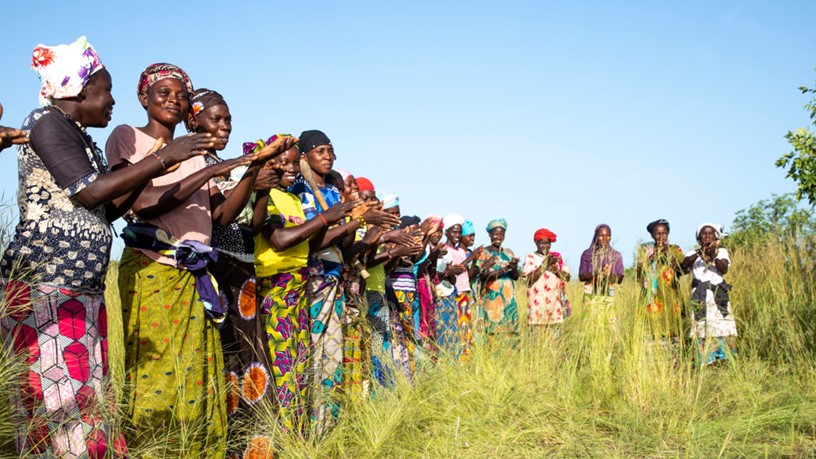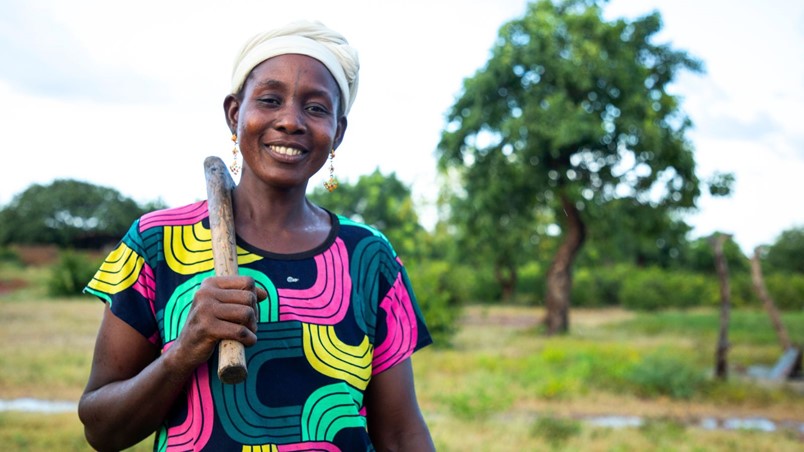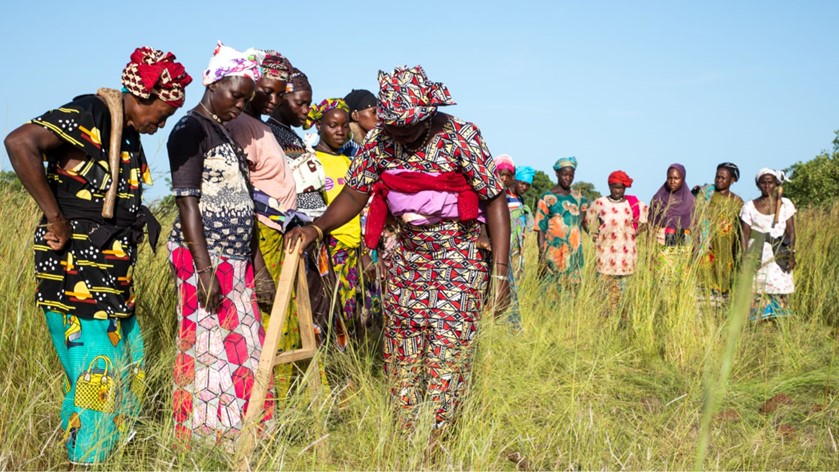
Being a Woman Here Means Hard Work and Courage
Over 1000 women supported. Incomes more than doubled: key results from our She Grows project. 25th March 2024Our She Grows project in Mali has come to an end, and we're thrilled to share how it's gone! For the past three years, we have been working in partnership with rural communities to empower women with the tools and training they need to restore land, tackle the climate crisis, and boost their incomes.
With your support, and with funding from UK public through UK Aid Match, this project has reached over 1000 women and has made significant strides forward for empowering women in the region.
Join us as we take a look at some of the project's key successes:
Why was this project needed?

Mali is one of the poorest countries in the world, where women have few opportunities to earn money. Most women depend on what they can grow on their land for food and income, but the climate crisis is making this even harder.
To make matters worse, women living in Mali have less access to healthcare, education and jobs. They are also prevented from managing the trees and land they rely on.
That's why this project aimed to train women so that they knew how to care for trees, help local forests thrive, and increase the number of women making decisions about the use of local natural resources.
The project also provided women with the tools and training they need to turn tree products like fruit and nuts into nutritious food to eat, and products like soap and shea butter to sell.
By providing women with training in key business skills and links to buyers, they can increase their household income, and pay for essential things like school fees.
Meet Sitan:

You might remember Sitan Diarra, who lives in South Western Mali. We first featured her story in 2020, when she was about to take part in the project. She is one of the 1,000 women supported since then.
Through the project, she's joined forces with women from her community to process and sell forest products like balanites and shea butter. She's also involved in the village cooperative set up to help the community save money. Watching her income grow, Sitan has felt her value in the community transform:
"I play an important role in the community, because being a woman here means hard work and courage."
For Sitan, the project has provided vital knowledge needed for things like water and soil conservation, which are crucial for growing food in Africa's drylands.
"Thanks to the project, we know how to speak in public. The activities of the project have also allowed us to acquire a lot of knowledge."
How has the project helped?

Spread over 10 different villages, the three-year project supported 1000 women by focusing on improving their rights to forests and helping them set up sustainable businesses from selling tree products.
From water and soil conservation to beekeeping, land rights and even public speaking, women were equipped with the skills and knowledge they need to care for forests and continue growing their incomes.
On top of this, workshops on gender equality were delivered to both men and women in the communities, and 58 women were supported to form monitoring brigades. Traditionally seen as men's roles, these brigades are equipped with bikes, torches, boots and machetes and trained ways to protect their forest area from attempts at deforestation.
Overall, participants saw an average household income increase by an incredible 171%. Women in management positions also grew from 31% to 57%. And over a third of women involved have been able to lift their families above the poverty line.